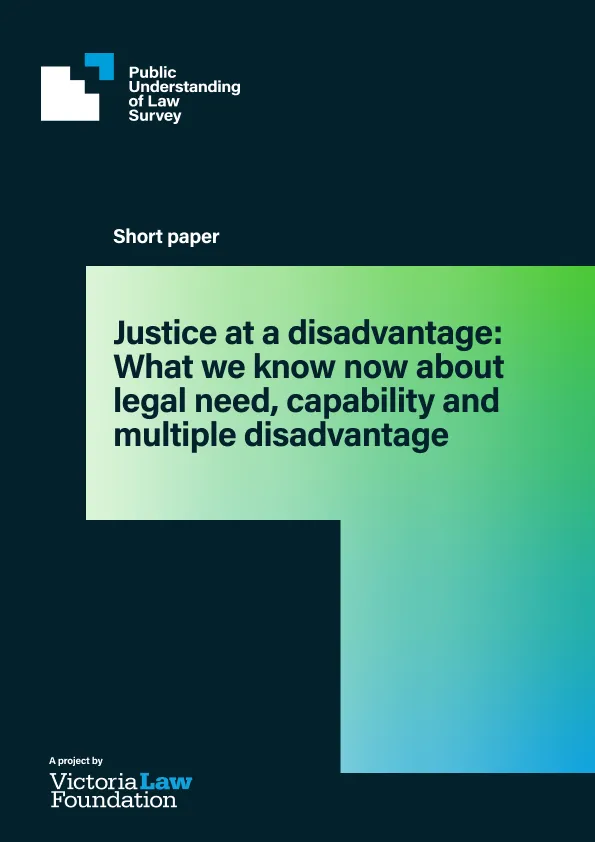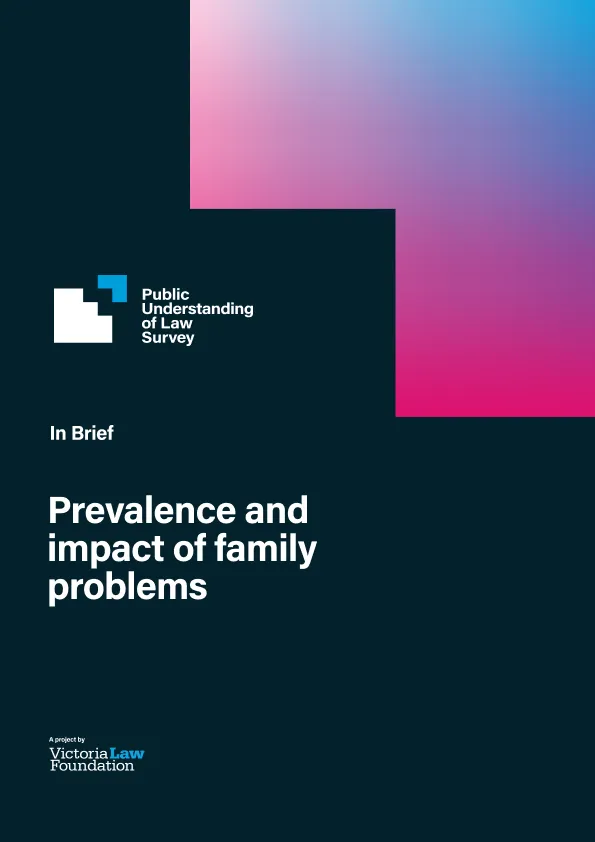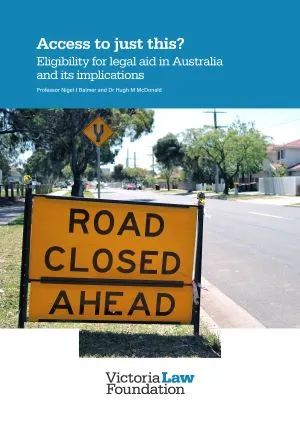2025-27 Research Plan: PULS Applied
The 2025-27 Research plan is built on three strategic research streams that generate new insights, identify evidence gaps, and support new ways of working to build capability and improve access to justice.
Understanding legal need and capability
Investigating how Victorians experience legal problems and respond to justiciable issues, and exploring new directions in legal need and capability research.
Collaborating for knowledge translation
Leveraging our expertise and trusted voice to work with partners to translate research into practical policy insights, tools, and resources.
Measuring and learning what works
Strengthening outcomes-based practice and the evidence base on what works to effectively meet legal need and build legal capability.
Recent publications
Explore our range of publications interrogating the legal need, capability and access to justice.
Investigating the interplay of disadvantage, legal need, and legal capability in Victorians experiencing legal problems.

Exploring the resolution and outcomes of Victorian's experience of family problems.

Exploring the prevalence and impact of Victorian's experience of family problems.

The challenges and implications of legal aid eligibility in Australia and calls for reform to improve access to justice.

Research projects
Our projects cover institutional and general public perspectives.
A Victoria-wide survey to understand how people see, understand and engage with the law.

Exploring targeted and effective people-centred services that are meeting legal needs across the Victorian justice and legal assistance sector.

Mapping institutional data across a broad range of civil justice bodies.

A survey of the community legal centre workforce across Victoria.

Subscribe to our Newsletter
Research Principles
Our research focuses on the legal and related needs of Victorians.
Impact
We undertake useful research to support improved civil legal services for Victorians.
Rigour
We use sound methodologies and rely on clear evidence for any conclusions.
Collaboration
We work in a collaborative way with the legal sector, civil society and others in the interests of access to justice for Victorians.
Communication
We make our reports publicly available and engage with the sector on research activity.
Independence
We maintain our independence.
How we build capability
We work across the research, justice and community sectors to strengthen the evidence base on legal need and legal capability.
The Research team
Victoria Law Foundation's highly-skilled research team have many years of experience in legal research.
How Victorians experience and resolve family problems
Our companion PULS In brief publications reveal that family problems, though less common, are Victoria’s most damaging legal issues with the highest unmet need.